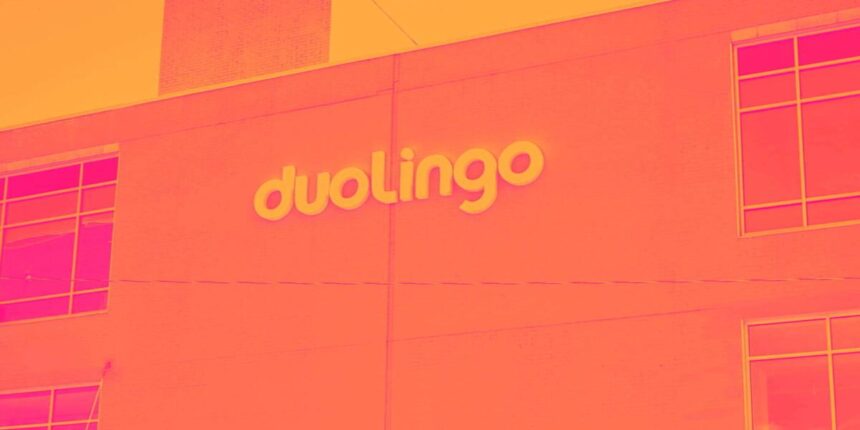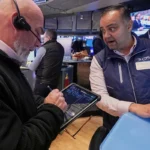Shares of Duolingo, the popular language-learning app traded on the NASDAQ under the ticker DUOL, saw a decline of 1.8% during the afternoon trading session following the company’s announcement of significant product updates at its annual Duocon 2025 event. Among the highlights was a new integration with LinkedIn, allowing users to display their “Duolingo Score” on their LinkedIn profiles. This feature aims to help learners present their language skills in a more professional setting, bridging the gap between online learning and real-world applications.
In addition to this, Duolingo expanded its well-received Chess course by launching it on Android, along with a new player-versus-player mode for iOS devices. These updates are part of Duolingo’s strategic shift from being solely a language-learning platform to a more comprehensive educational resource.
Market analysts have noted that the stock’s volatility—a characteristic of Duolingo’s shares, which have recorded 38 moves greater than 5% in the past year—suggests that while the market responds significantly to news, it may not perceive this particular update as a game-changer for the company’s overall outlook. In fact, this reaction follows a recent dip of 2.8% just four days prior, when news surfaced that Apple’s upcoming AirPods would feature real-time translation, raising competitive concerns for Duolingo.
Over the past three months, Duolingo’s stock has faced challenges, sliding by 14.2% since the year’s start. Currently priced at $279.48 per share, it stands 48.3% lower than its 52-week high of $540.68, achieved in May 2025. Historical context reveals that investors who purchased $1,000 worth of Duolingo shares at its initial public offering in July 2021 would now see that investment grow to approximately $2,011.
Despite the recent turbulence, some analysts retain a positive outlook. KeyBanc Capital Markets has reaffirmed its Overweight rating on the stock, viewing the Duocon event as a potential catalyst for renewed investor interest.
As for the broader investment landscape, some experts draw parallels to past tech successes and emerging opportunities in the enterprise software sector. The notion that stocks linked to generative AI capabilities could become the next big winners in technology echoes the sentiments that champions of past eras like Microsoft and Apple had a profound impact. In line with this perspective, a complimentary report highlighting a promising enterprise software stock positioned to leverage advancements in AI has been made available for investors.








